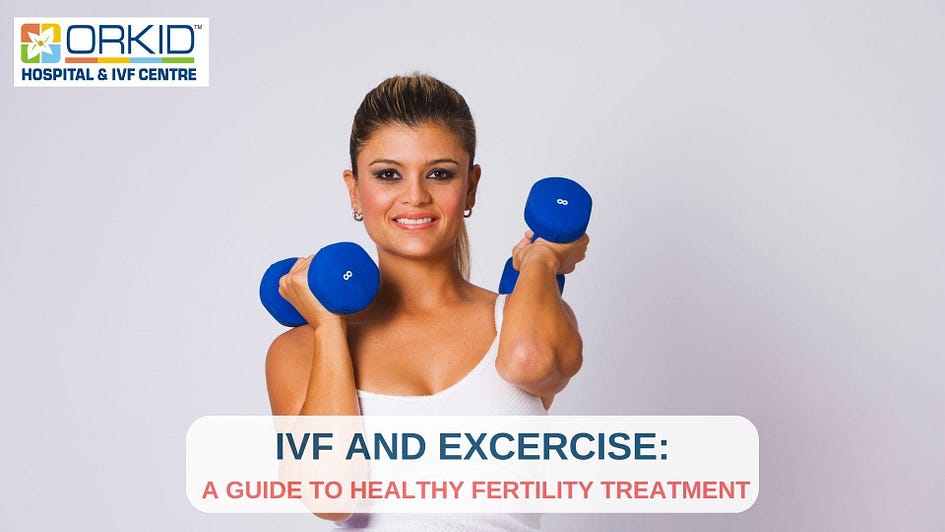Opting for assisted reproductive technology is both an exciting and emotionally charged journey. According to Dr Kajal Mangukiya of Orkid Hospital one of the Best IVF Center in Surat among the various stages of in vitro fertilization (IVF), the period between egg retrieval and embryo transfer is a critical phase that requires careful attention and self-care. In this blog, Dr Kajal shares some proactive steps and lifestyle choices to optimize your physical and emotional well-being during this pivotal time.
1. Rest and Recovery
Following the egg retrieval procedure, your body needs time to heal. It’s essential to prioritize rest and recovery during the days that follow. Avoid strenuous physical activities, heavy lifting, and intense exercise. Allow yourself the luxury of restful nights and, if possible, take short breaks during the day to recharge. Adequate sleep and relaxation can contribute significantly to your overall well-being and support the body’s natural healing processes.
2. Hydration and Nutrition
Staying hydrated and maintaining a nutritious diet are crucial components of self-care during the post-retrieval phase. Hydration helps flush out toxins and supports the body’s natural processes. Opt for a well-balanced diet rich in fruits, vegetables, lean proteins, and whole grains. Consider incorporating foods with anti-inflammatory properties, such as berries, leafy greens, and fatty fish, to promote a healthy internal environment.
3. Medication Adherence
Following the egg retrieval, you may be prescribed medications to support the development and preparation of the uterine lining for embryo transfer. It’s imperative to adhere to your medication schedule given to you by the experts from the best infertility centre in Surat. Set alarms or reminders to ensure you take medications at the designated times. Consistency in medication adherence is critical for the success of the subsequent embryo transfer.
4. Open Communication with Your Care Team
Consulting the doctors at the best IVF hospital in Surat and maintaining open and transparent communication with your healthcare team is crucial throughout the IVF process. If you experience any unusual symptoms or have concerns about your recovery, promptly share them with your fertility specialist or nurse. They are there to provide guidance, answer questions, and address any uncertainties you may have. Regular check-ins with your care team will help ensure that you are on the right track for the embryo transfer.
5. Emotional Well-being and Coping Strategies
The period between egg retrieval and embryo transfer can be emotionally challenging. It’s normal to experience a range of emotions, from anticipation to anxiety. Engage in activities that bring you joy and relaxation, whether it’s reading, listening to music, or practicing mindfulness. Consider joining a support group or seeking professional counseling to connect with others who understand your journey and to explore effective coping strategies.
6. Gentle Exercise and Movement
While strenuous activities are to be avoided, incorporating gentle exercises into your routine can be beneficial. Activities such as walking, yoga, or light stretching can promote blood circulation, reduce stress, and enhance overall well-being. Always consult with your healthcare provider at the best test tube baby centre in Surat before starting any new exercise regimen to ensure it aligns with your individual situation.
7. Avoiding Harmful Substances
Steer clear of substances that can potentially impact fertility or the success of embryo implantation. Minimize alcohol consumption and avoid smoking or exposure to second hand smoke. Additionally, limit caffeine intake, as excessive caffeine consumption may negatively affect fertility. Adopting a lifestyle that minimizes exposure to harmful substances contributes to creating an optimal environment for the developing embryos.
8. Educate Yourself on the Embryo Transfer Process
Understanding the upcoming embryo transfer process can help alleviate anxiety. Take the time to educate yourself on what to expect during the transfer procedure, including any preparations or restrictions. Being well-informed allows you to approach the experience with a sense of empowerment and reduces the uncertainty surrounding this crucial step in the IVF journey.
9. Stay Positive and Practice Patience
IVF is a journey that requires resilience, patience, and a positive mindset. Understand that the path to parenthood may have its challenges, but each step is a unique part of your story. Focus on the positive aspects of your journey, celebrate small victories, and acknowledge your strength in navigating the complexities of fertility treatment.
Conclusion
The period between egg retrieval and embryo transfer is a critical phase in the IVF process, demanding both physical and emotional care. Prioritizing rest, adhering to medication schedules, maintaining open communication with your care team, and nurturing your emotional well-being are key components of successful self-care during this time. Remember, you are not alone on this journey, and with a combination of self-compassion and proactive steps, you can optimize your chances for a positive outcome during the subsequent embryo transfer.











